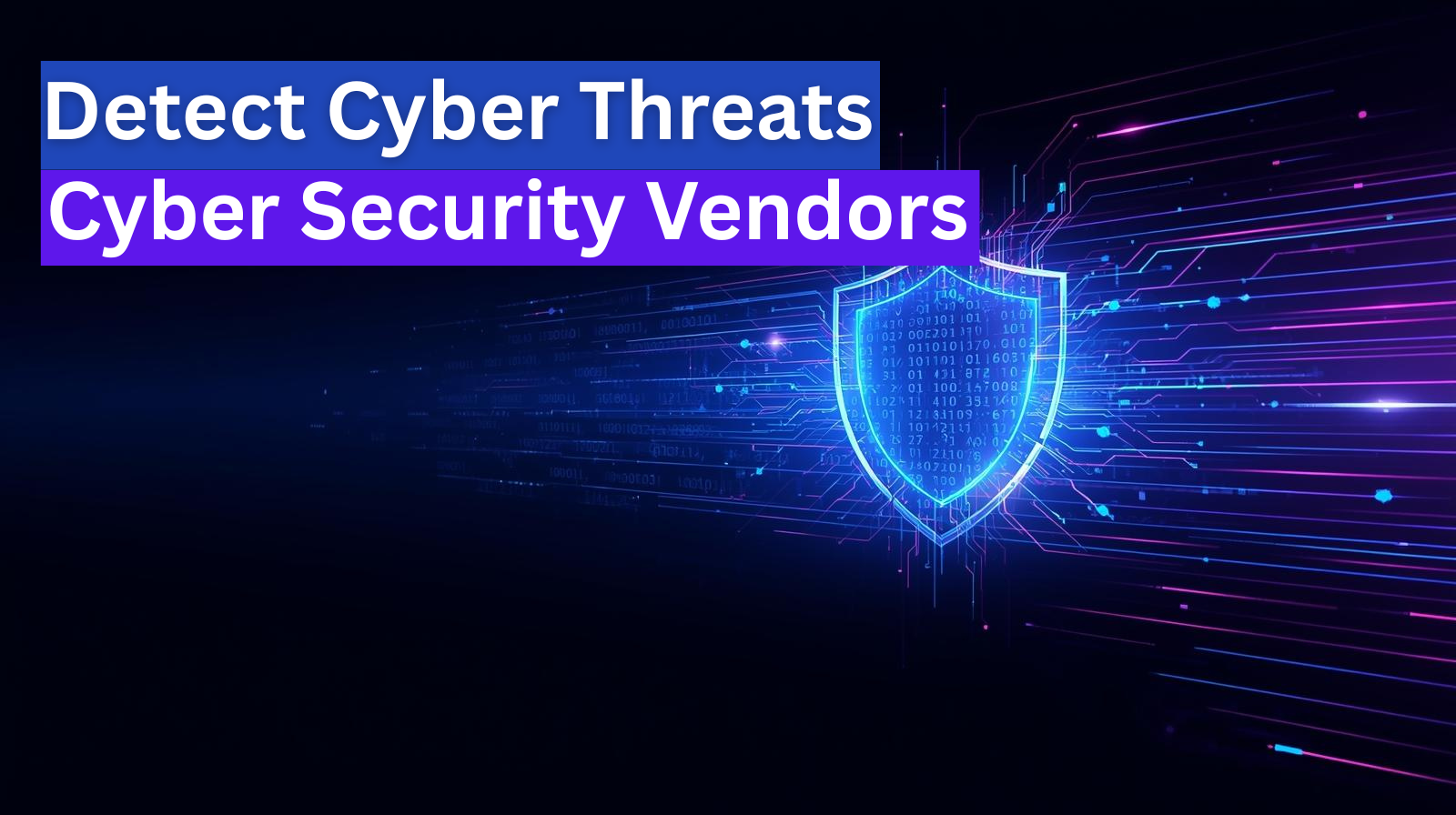In today’s digital age, cyber threats are growing faster than ever. From data breaches to phishing attacks, every business—big or small—is a target. That’s where cyber security vendors come into play. They act as digital bodyguards, protecting your network, detecting intrusions, and keeping your sensitive information safe from hackers.
Understanding the Importance of Cyber Security Vendors
Think of cyber security vendors as the immune system of your organization’s IT infrastructure. Without them, your network is exposed to countless online dangers. These vendors provide advanced tools and technologies that constantly monitor and defend your digital environment against evolving cyber threats.
What Are Cyber Security Vendors?
Cyber security vendors are companies that develop software, hardware, and services designed to safeguard businesses from cyberattacks. They offer solutions such as firewalls, antivirus software, network monitoring tools, and AI-driven threat detection systems to ensure data integrity and confidentiality.
Why Businesses Need Network Cyber Security Vendors
With the rise of remote work, cloud adoption, and interconnected systems, network vulnerabilities have multiplied. Businesses need network cyber security vendors to:
- Monitor 24/7 for suspicious activities
- Detect and respond to threats in real-time
- Ensure compliance with industry regulations
- Safeguard data across devices and networks
Without reliable vendors, a single breach could cost millions in damages and reputational loss.
Types of Cyber Threats Targeting Modern Networks
5.1 Malware and Ransomware
These malicious programs infiltrate systems, encrypt data, and demand ransom payments. Vendors use behavior-based analytics to stop them before damage occurs.
5.2 Phishing Attacks
Cybercriminals trick employees into revealing confidential information. Vendors provide email filtering and phishing detection tools to combat these scams.
5.3 Denial-of-Service (DoS) Attacks
Hackers flood servers with traffic to shut down operations. Network monitoring solutions from vendors help detect and mitigate such attacks instantly.
5.4 Insider Threats
Sometimes, threats come from within—disgruntled employees or unintentional human errors. Vendors implement access controls and user behavior analytics to prevent internal breaches.
Key Roles of Cyber Security Vendors in Threat Detection
Cyber security vendors continuously analyze traffic, monitor logs, and apply advanced algorithms to detect irregular patterns. They integrate artificial intelligence (AI) and automation to ensure faster detection and mitigation of attacks.
Top Features of Leading Cyber Security Vendors
7.1 Threat Intelligence
Vendors collect and share real-time global data on cyberattacks, helping organizations stay one step ahead of attackers.
7.2 Real-Time Monitoring
Continuous surveillance ensures any suspicious network activity is flagged immediately.
7.3 Intrusion Detection and Prevention
These systems identify and block unauthorized access before it reaches critical systems.
7.4 Endpoint Protection
Every connected device—laptops, smartphones, servers—is secured against vulnerabilities.
How Network Cyber Security Vendors Detect Threats
8.1 Behavioral Analysis
By studying normal user behavior, vendors can detect anomalies that may signal an attack.
8.2 Machine Learning and AI Integration
AI-powered solutions learn from previous incidents, improving accuracy in predicting and preventing future attacks.
8.3 Automated Incident Response
Automation reduces response time, isolating threats instantly to prevent data loss.
Top Cyber Security Vendors in 2025
9.1 Palo Alto Networks
Known for next-gen firewalls and threat intelligence, Palo Alto Networks offers powerful detection capabilities for large enterprises.
9.2 Fortinet
Fortinet provides end-to-end security through its FortiGate solutions, ensuring robust protection and high performance.
9.3 Cisco Systems
Cisco offers integrated security platforms with AI-based analytics for detecting sophisticated threats.
9.4 CrowdStrike
CrowdStrike’s Falcon platform uses cloud-native AI technology to stop breaches in real time.
9.5 Sophos
Sophos delivers powerful endpoint protection and managed detection services, ideal for mid-sized businesses.
How to Choose the Right Cyber Security Vendor
When selecting a vendor, consider:
- Reputation and experience
- Integration capabilities
- Customer support
- Scalability
- Compliance coverage
A good vendor should align with your organization’s security needs and business goals.
Benefits of Partnering with Trusted Vendors
- Enhanced protection and faster threat response
- Reduced downtime and data breaches
- Cost savings through managed services
- Access to the latest security technologies
Reliable vendors empower businesses to focus on growth instead of constantly worrying about cyber threats.
Challenges Cyber Security Vendors Face
Even vendors face obstacles such as:
- Rapidly evolving attack methods
- Balancing automation with human oversight
- Maintaining data privacy regulations
- Integrating with diverse IT infrastructures
Despite these challenges, vendors continue to innovate and adapt to secure global networks.
The Future of Cyber Security Vendors
The future of cyber security vendors lies in AI-driven automation, predictive analytics, and zero-trust architectures. As cyber threats become more complex, vendors will rely heavily on machine learning and big data to anticipate and neutralize attacks before they happen.
Best Practices to Work Effectively with Vendors
- Conduct regular security assessments
- Maintain open communication channels
- Share relevant threat intelligence
- Ensure clear Service Level Agreements (SLAs)
- Train staff alongside vendor-provided programs
Strong collaboration ensures maximum protection and quick response to potential threats.
Also Read: Why Cyber Security Companies in Dubai Are Essential for Financial and Healthcare Sectors
Conclusion
Cyber threats are here to stay, but with the right cyber security vendors, businesses can defend themselves effectively. These vendors not only detect and stop attacks but also help organizations build resilient, future-ready networks. Choosing a trusted vendor isn’t just about security—it’s about peace of mind in a digital-first world.
FAQs
1. What do cyber security vendors do?
They provide tools and services that protect networks, detect threats, and respond to cyber incidents.
2. How do vendors detect cyber threats?
Through AI, machine learning, and behavioral analysis, vendors identify anomalies and suspicious activities.
3. Which are the top cyber security vendors in 2025?
Palo Alto Networks, Cisco, Fortinet, CrowdStrike, and Sophos lead the market.
4. Why is continuous monitoring important?
It ensures threats are detected and neutralized in real time, preventing potential breaches.
5. What should businesses look for in a cyber security vendor?
Strong threat intelligence, reliability, scalability, and responsive customer support are key.
